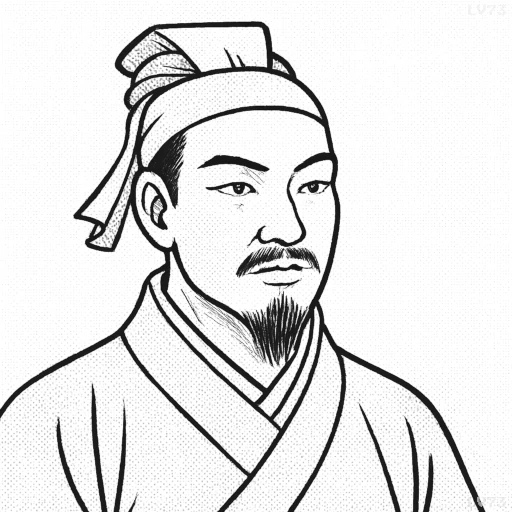“The general who advances without coveting fame and retreats without fearing disgrace, whose only thought is to protect his country and do good service for his sovereign, is the jewel of the kingdom.”

- 544 BC-496 BC
- Born in China
- Military strategist, military strategist
table of contents
Quote
“The general who advances without coveting fame and retreats without fearing disgrace, whose only thought is to protect his country and do good service for his sovereign, is the jewel of the kingdom.”
Explanation
This quote from Sun Tzu emphasizes the qualities of a true leader, who is driven by duty and selflessness, rather than personal glory or fear of failure. The ideal general, according to Sun Tzu, prioritizes the well-being of the state and the interests of the sovereign over personal recognition or avoidance of disgrace. By focusing on the greater good, this general becomes an invaluable asset to the nation, earning the trust and respect of both the people and the ruler. Sun Tzu’s ideal leader is defined by humility, integrity, and dedication to the mission, rather than ego or ambition.
In modern leadership, this quote is highly applicable to military commanders, politicians, and even corporate executives. Leaders who act with the best interests of their organizations or countries in mind, rather than seeking fame or avoiding embarrassment, build lasting respect and effectiveness. For example, Winston Churchill, during World War II, exhibited these qualities by focusing on Britain’s survival and long-term interests, even when facing personal criticism or public opposition. His leadership was not motivated by personal fame, but by a deep sense of duty to his country.
The idea also resonates with the values of integrity and service in both leadership and governance. The most effective leaders, whether in military or civilian life, are those who prioritize responsibility and service over self-interest. In contemporary military forces, such leaders are often recognized for their ability to maintain discipline, morale, and loyalty in the face of challenges, ensuring the long-term success of their teams or nations. General Dwight D. Eisenhower, for instance, led with a focus on collective victory and cooperation, putting the interests of the Allied forces above personal accolades.
Would you like to share your impressions or related stories about this quote in the comments section?



